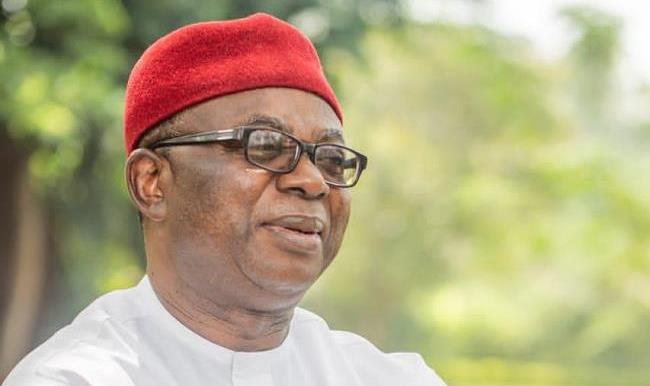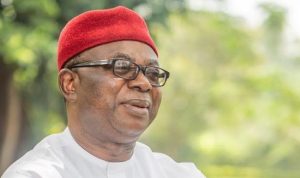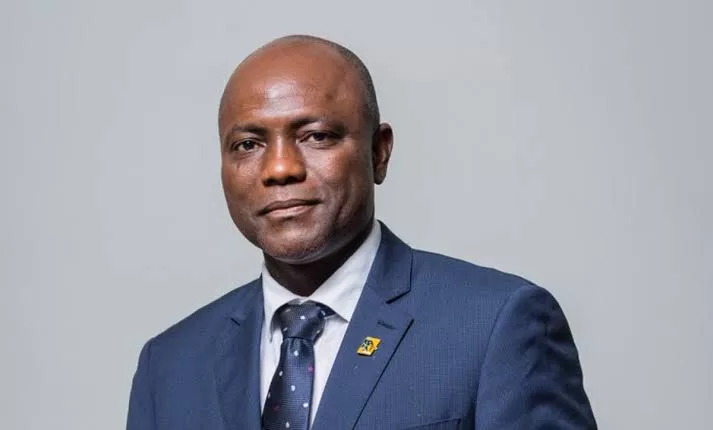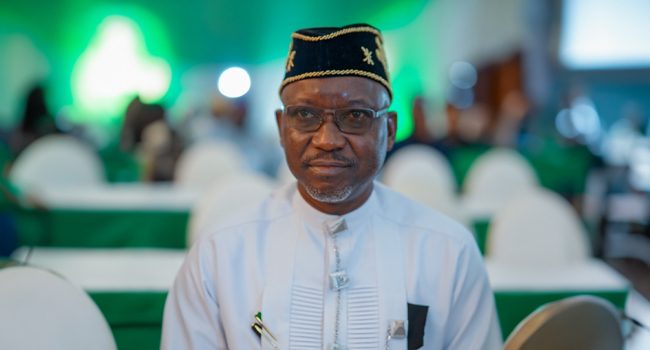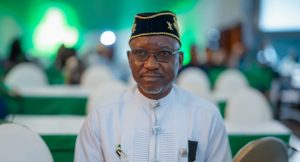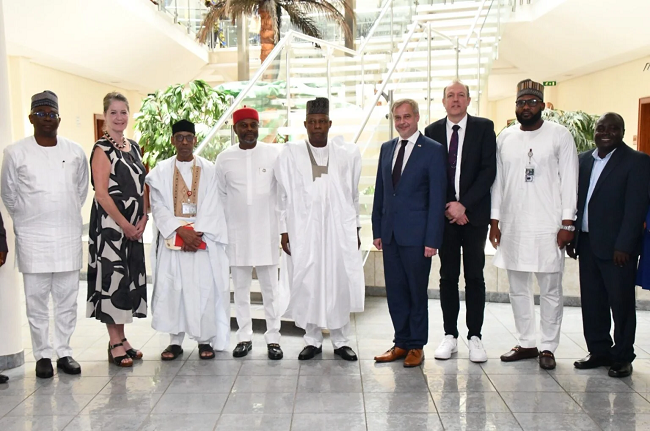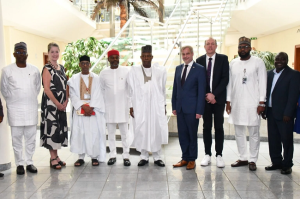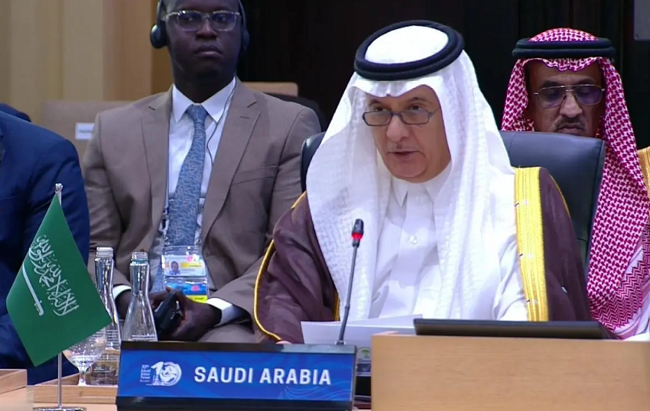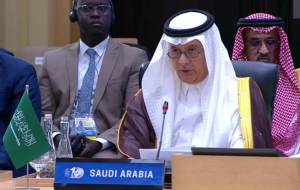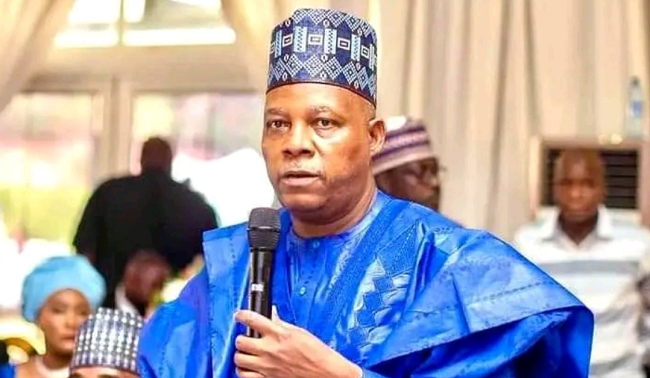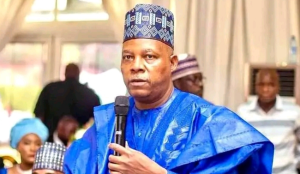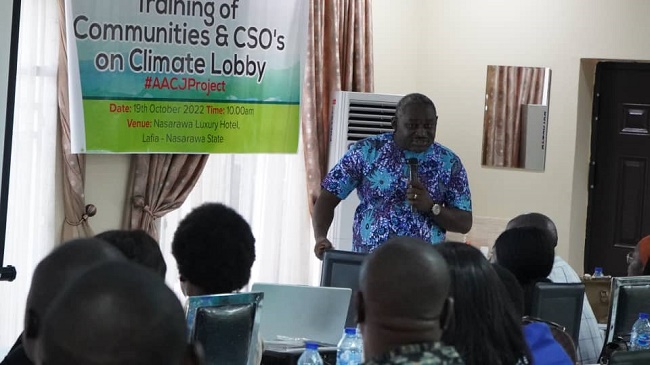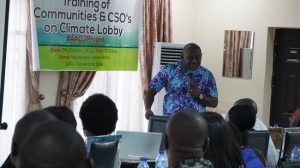On assumption of office, the President Bola Tinubu-led administration embarked on an ambitious transformation to revitalise Nigeria’s economy and improve the lives of its citizens.

Central to this vision is an 8-Point Agenda targeting key areas such as food security, poverty alleviation, economic growth, inclusivity and national security.
A cornerstone of this plan is the Federal Ministry of Water Resources and Sanitation, which has been tasked with several critical initiatives.
One of the immediate priorities is ensuring that both food and water availability and affordability are considered national security issues.
This integrated approach mandates collaboration between the Federal Ministry of Agriculture and the Federal Ministry of Water Resources and Sanitation to promote year-round agricultural productivity through effective irrigation.
The government says it recognises the need for a secure environment where farmers can work without fear of attacks.
By engaging the nation’s security architecture, the government says that efforts are underway to protect farmlands and ensure the safety of those who cultivate them; thus encouraging farmers to return to their fields.
It may be recalled that the twelve River Basin Development Authorities (RBDAs) are pivotal in supporting continuous farming.
By implementing irrigation schemes, these bodies are enabling the cultivation of crops even during the dry season, thereby mitigating seasonal fluctuations in food supply.
For instance, the Graduate and Youth Empowerment programme in these river basins has supported young people in acquiring improved farming skills using water resources from dams and irrigation facilities.
A beneficiary at the Benin-Owena River Basin scheme, Michael Salami, said he had been trained in beekeeping techniques and had found more opportunities to expand his business and become self-employed by exporting honey.
Other beneficiaries were trained in aquaculture, palm oil production, and rice farming, among other areas.
To align with the Renewed Hope Agenda and the Declaration of State of Emergency on Food Security, the ministry has unveiled several flagship projects.
These include the Water for Expanded Irrigated Agriculture Programme (WEIRPRO), the Partnership for Expanded Irrigation Programme (PEIRPRO) and the River Basin Strategy for Poverty Alleviation (RB-SPA).
These initiatives aim to revolutionise irrigated agriculture, boost food security, alleviate poverty, create jobs, and spur economic growth.
The ministry says it is committed to adopting innovative water resource management practices.
This involves partnering with state and local governments, as well as communities, to enhance agricultural productivity.
According to the ministry, by transitioning from traditional methods to scientific approaches, the goal is to achieve year-round farming, frequent cropping cycles and higher crop yields.
While new initiatives are critical, the ministry also prioritises completing existing projects.
Given the significant capital investments already made, it is essential to ensure that these projects deliver value for money and contribute to the socio-economic wellbeing of the citizenry once operational.
It may be recalled that the theme of the 30th Meeting of the National Council on Water Resources and Sanitation, “People, Planet and Prosperity: Promoting Water Governance for National Food Security,” reflects the administration’s comprehensive plan.
The meeting offered a platform to review progress since the last council gathering and make strategic decisions to meet presidential and Sustainable Development Goals (SDG) targets in the water and sanitation sectors.
In his submission, the Minister of Water Resources and Sanitation, Prof. Joseph Utsev, said efforts to enhance the food security agenda included the construction and rehabilitation of dams and associated infrastructure.
The minister said the agenda supported water supply, sanitation, irrigation, and hydropower generation; thereby contributing to the nation’s socio-economic development.
In response to frequent flooding, Utsev said it was done with the development of a comprehensive plan to prevent flood disasters.
According to him, it includes designing buffer dams and conducting feasibility studies for flood detention dams to manage excess water from major rivers.
He said effective collaboration among federal, state, and local governments is essential to maximise the benefits of existing water infrastructure.
This cooperation, he added aimed at harnessing the full potential of dams and irrigation systems for socio-economic growth.
It is worthy to note that irrigated agriculture is key to Nigeria’s economic vibrancy, with completed irrigation schemes, handed over to farmers through the World Bank-sponsored Transforming Irrigation Management in Nigeria (TRIMING) project.
The project has significantly boosted agricultural productivity in regions like Jigawa and Kano states, while sustainability strategies and planning to expand 500,000 hectares of irrigable land by 2030 have been developed by the ministry.
Agriculture stakeholders believe that climate change is another significant problem affecting Nigeria’s agricultural sector, as changes in temperature and rainfall patterns have affected crop yields.
Mrs Liyatu Ayuba, a member of the Small Scale Women Farmers Organisation in Nigeria (SWOFON), called on the Nigerian government to extend financial facilities to farmer cooperatives and processing companies.
She said that such support was crucial for procuring the technologies and inputs needed for business growth.
Ayuba highlighted the need for the Nigerian Meteorological Agency (NIMET) to increase efforts in providing farmers across different agro-ecological zones with seasonal rainfall predictions.
According to her, it is vital for farmers to plan and operate their farms effectively in response to expected rainfall patterns.
Ayuba urged the Ministries of Agriculture at both state and federal levels, along with the Central Bank of Nigeria, to facilitate agricultural insurance for small-scale farmers.
She said such support was necessary to mitigate losses caused by climate change-induced events such as floods, droughts, and erosion.
“State Ministries of Agriculture should be encouraged to ensure farmers have access to essential inputs.
“This would optimise harvests, enhance resilience to climate change, secure food supply, generate more demand for farm products and open market channels for moving food from rural areas to cities,’’ she said.
Ayuba underscored the need for continued collaboration and support from stakeholders in formulating policies to achieve the Renewed Hope Agenda.
Mr Kabir Ibrahim, the National President of the All Farmers Association of Nigeria (AFAN), noted that addressing the food crisis without tackling security issues is futile.
Ibrahim said that many farmers had been killed on their farms, and numerous others were currently seeking refuge in various IDP camps.
He acknowledged the current administration’s efforts to ensure food security but raised a vital concern.
“The primary objective is to get our people back to their farms, which can only happen when they feel safe and assured of returning home alive; therefore, security must be the starting point,” he said.
Corroborating further, a Water Resources expert, Dr Inuwa Kuta, said that achieving water governance for food security was essential and about deliberately putting programmes that would improve the lives of the population.
According to him, effective water governance is acknowledged as a key factor to impactful food security and socio-economic development of any nation.
He said by prioritising the availability and affordability of food and water, the administration addressed the critical resources as national security issues.
“The focus on innovative water resource management, completing existing projects, and proactive climate measures underscores a commitment to sustainable development.
“To enhance food security, Nigeria should strengthen farmer security, expand irrigation, and promote climate-resilient practices, while also providing financial support, fostering government collaboration, and encouraging public-private partnerships,’’ he said.
Kuta said implementing the aforementioned recommendations would help Nigeria achieve its food security goals and ensure a resilient and prosperous future.
All in all, experts say the focus on innovative water resource management is laudable.
They hold that the completion of existing projects, as well as proactive measures against climate change and flooding underscore the administration’s commitment to sustainable development and socio-economic well-being of Nigerians.
By Tosin Kolade, News Agency of Nigeria (NAN)


